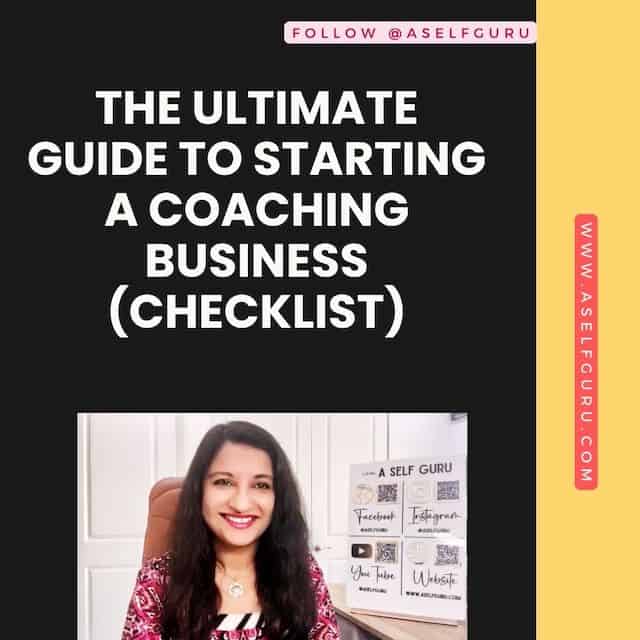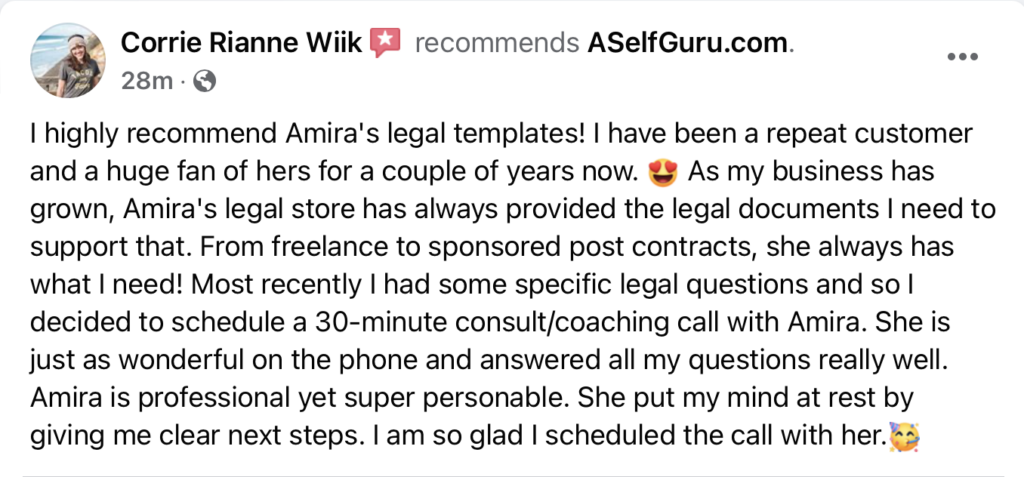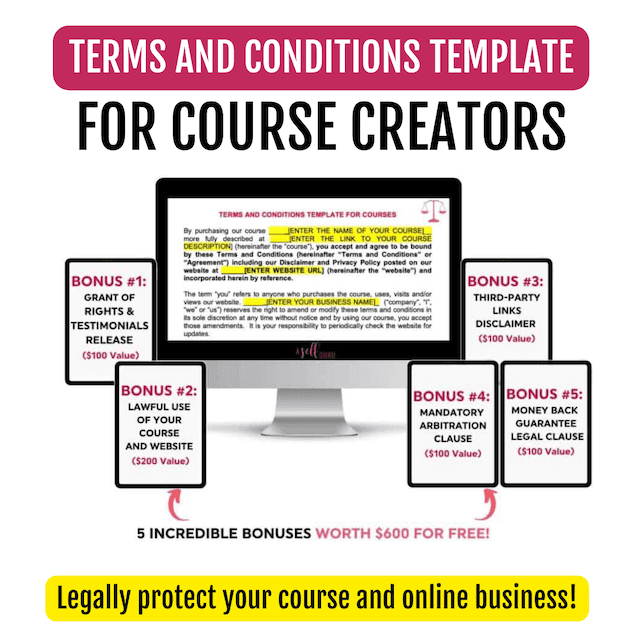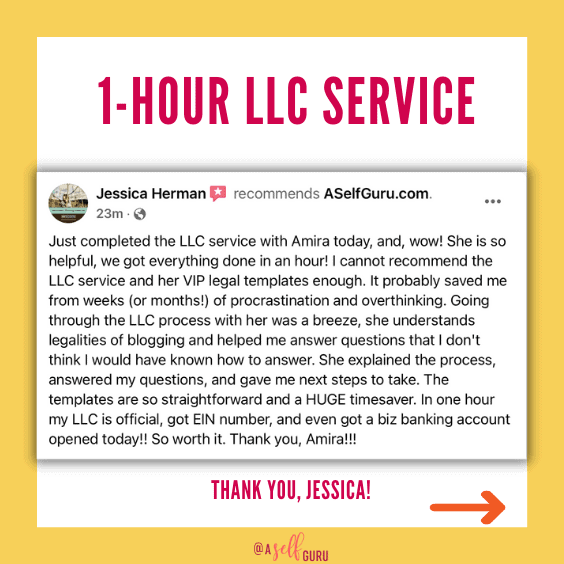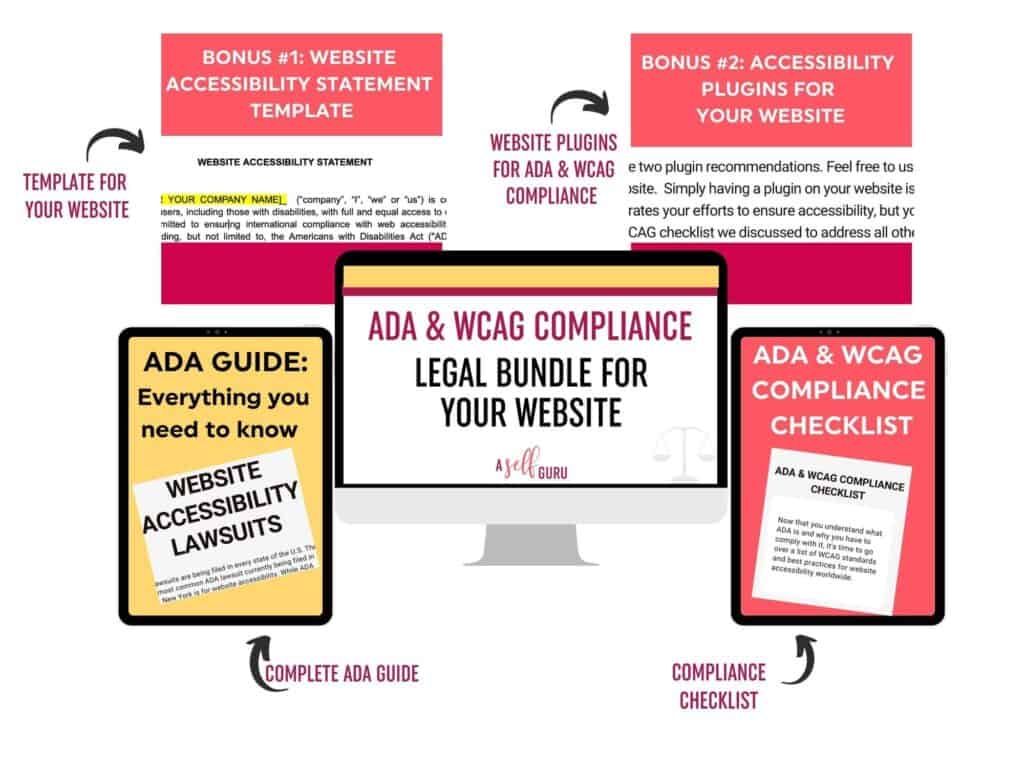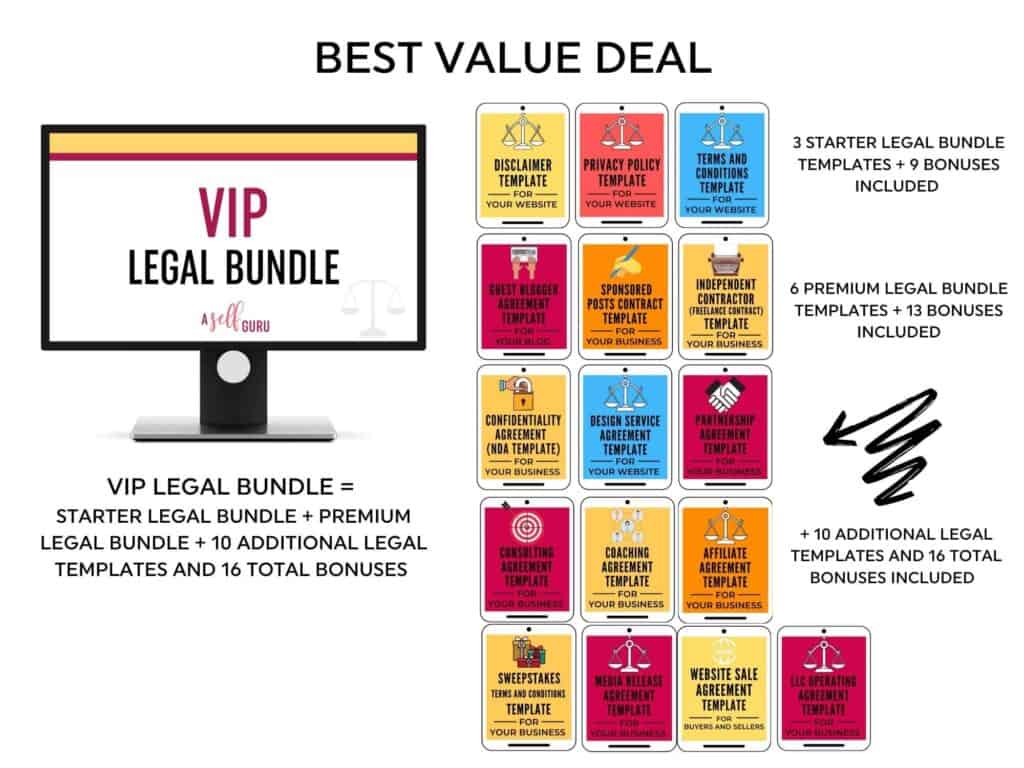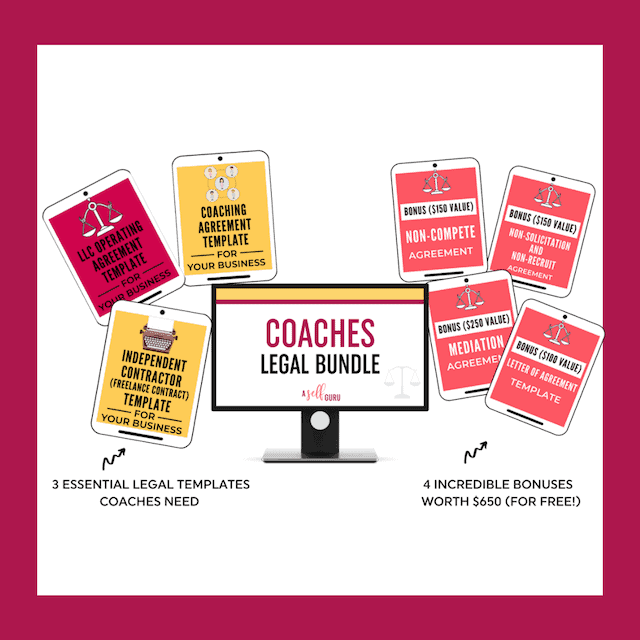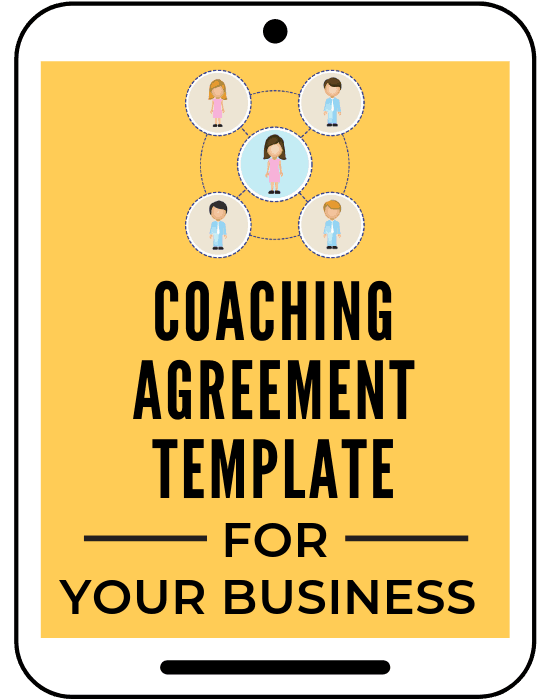Whether you’re a seasoned blogger or a thriving online business owner looking to branch out into the coaching industry, this starting a coaching business checklist is designed to help you navigate the initial stages of your coaching journey.
From legal protection for your coaching program to establishing a profitable business, I’ve got you covered.
As a business lawyer and coach myself, my goal is to equip you with an understanding of the necessary steps and how to take them confidently and clearly.
Table of Contents
Starting a Coaching Business Checklist: The Ultimate Guide
Let’s get started on turning your coaching aspirations into a successful reality. Follow this step-by-step guide.
Understanding Coaching and Coaching Clients
One of the most important things to understand is what exactly is coaching?
Coaching is essentially a process-oriented approach to personal and professional development.
It involves a relationship between a coach and a client, where the coach provides guidance, encouragement, and support to the client, enabling them to achieve specific personal or professional goals.
The coach facilitates the process, empowering clients to realize their potential, overcome obstacles, and make transformative changes.
Related Post: 3 Coaching Contracts for a Successful Coaching Business
Types of Coaching Business
There are many different types of coaching, each catering to different personal and professional development areas.
For example, you may have worked with a fitness coach to get in shape.
See some more coaching business examples below:
Life Coaching: This is perhaps the most common type of coaching. Life coaches help clients identify their goals, develop action plans, and make lifestyle changes to improve overall quality of life.
Business Coaching: Business coaches work with entrepreneurs and business leaders, providing guidance in strategy, leadership, and team building. This is what I do! (you can book a coaching/consultation with me here)
Career Coaching: Career coaches assist individuals in making informed decisions about career development and progression. They also guide job searches, resume writing, and interview preparation.
Wellness Coaching: Wellness coaches focus on health and well-being, helping new clients to make positive lifestyle changes around diet, exercise, and stress management.
While mapping out the specific services and resources you’ll offer as a wellness coach, it’s important to consider evidence-based tools and medications that support clients in their health goals.
For those coaching individuals exploring medical options for weight management, you may want to stay up-to-date with solutions your clients might be researching—such as Ozempic weight loss medication information—to better understand the landscape of online prescriptions and support informed discussions.
Executive Coaching: This type of coaching is aimed at high-level executives seeking to improve their leadership skills, decision-making, and work-life balance.
Performance Coaching: Performance coaching is about enhancing an individual’s performance in a specific area of their life, such as sports, public speaking, or artistic pursuits.
How Do I start a Coaching Business from Scratch?
I have outlined the steps below for you to get started.
Initial Planning of Your Coaching Business
Once you know what type of coaching you can offer, there are a few steps to take for your initial planning and creating a coaching package for your ideal client.
1. Define Your Niche
Defining your niche is the first thing in the initial planning stage of starting a coaching business. This involves identifying a specific area or demographic your coaching services will target.
When defining your niche, consider your passions, expertise, and the ideal clients you want to work with.
Ask yourself, “What specific problems can I solve?” or “What unique value can I bring?” Knowing the answers to these questions will help you define your niche and position yourself effectively in the market.
For instance, if you’re passionate about health and fitness, your niche could be wellness coaching for busy professionals.
If your background is in corporate leadership, you could target executives seeking to improve their management skills. It’s all about finding the intersection between what you love, what you’re good at, and what people are willing to pay for.
2. Identify Your Target Clients
Identifying your target clients is the next step in your coaching business plan. This process involves recognizing who will benefit from your services.
Start by creating a profile of your ideal client – what are their challenges, needs, and aspirations? Which demographic do they belong to? What are their hobbies, professions, or lifestyle?
Understanding your target clients’ characteristics is the best way to tailor your coaching services to meet their specific needs.
Your target clients’ profile also informs your marketing strategy because it helps you understand where your potential clients spend their time, both online and offline, and what communication channels they prefer.
For instance, if you’re a career coach targeting recent college graduates, you might find that they are active on LinkedIn and job search forums and respond well to webinar content.
You can look at stealthseminar.com to get started with your webinar.
Conversely, a wellness coach for busy professionals might find the right type of clients on professional networking sites, health and wellness blogs, or at local networking events.
Remember, the better your understanding of your target clients, the more effectively you can reach them, engage them, and ultimately convert them into paying clients.
Related Post: Essential Coach Templates You Need
Building Your Coaching Business
With these basics in place, you can move to the next section of the starting a coaching business checklist, which is building your coaching business.
Write a Business Plan
Taking the plunge to start your own business can be thrilling and daunting.
The key to success lies in prepping the ground well; an articulated business plan is your first step.
A business plan serves as your guiding light, helping you define your mission, vision, and business goals and outlining the steps you need to take to achieve them.
Below are some tips on creating your first business plan.
1. Executive Summary
This is a brief overview of your business plan, which should summarize your business concept, objectives, financials, and strategies.
Think of it as a sneak peek into your business, enticing readers to delve deeper into your plan.
2. Company Description
Give a detailed description of your coaching business.
What services will you offer? What problems are you solving for your clients? Who are your target clients?
This section should paint a clear picture of your business and its purpose.
3. Market Analysis
You must demonstrate a thorough understanding of your industry, including your niche,competition, and target market.
Showcase your market research, your identified opportunities, and how you plan to capitalize on these.
4. Organization and Management
Describe the structure of your business.
Are you a sole proprietor, LLC or do you have partners?
What is your management structure, and who will be responsible for what? Include an organizational chart if helpful.
5. Services
Detail the coaching services you plan to offer. How will these services benefit your clients?
What makes your offerings unique or superior to the competition?
6. Marketing Plan and Sales Strategy
Outline your strategy for attracting and retaining clients. How will you reach your target audience? What sales tactics will you employ?
7. Funding Request
If you’re seeking funding, specify your financial needs and future requirements over the next five years.
Outline how you will use the funds and the type of funding (debt, equity) you are seeking.
8. Financial Projections
Include projections for the next five years.
Your goal here is to convince the reader that your business is stable and will be profitable.
Include forecasted income statements, balance sheets, cash flow statements, and capital expenditure budgets.
Remember, your business plan isn’t set in stone.
It’s a living document that should evolve as your business grows and changes.
Update it regularly to keep it fresh and relevant, providing a clear roadmap for your business’s future.
How do I Structure my Coaching Business?
As a recap, when it comes to structuring your coaching business model, you need to think about your:
- your target audience,
- the services you will offer,
- your pricing strategy
- legal structure of your coaching business (such as an LLC)
- marketing plan
- bookkeeping
Let’s briefly talk about each of these:
Once you have defined your target audience and their pain points then you need to think about your coaching services.
Will you focus on one-on-one coaching, group programs, or a combination of both?
Consider the specific areas or topics you want to coach in and how you can differentiate yourself from other new coaches or professional coaches.
Once you have defined your target audience and services, it’s important to determine your pricing strategy.
Will you charge hourly rates, package prices, or a monthly retainer? Consider the value of your services and what your target audience is willing to pay.
Marketing is also essential for any business, including coaching. Think about how you will reach potential clients and stand out from the competition.
This could include creating a website, using social media, attending networking events, or offering free consultations.
Finally, consider the legal operations of your business.
How will you manage client bookings, payments, and communication?
You should have a business bank account to keep your business separate from your personal expenses.
Will you have contracts or forms for clients to fill out? These details may seem small, but they are crucial for a smooth and professional coaching experience.
Remember, there is no one-size-fits-all approach to structuring a coaching business.
Watch this video to learn what kind of coaching contracts you will need and subscribe to my channel.
How to Register Your Coaching Business
Registering your coaching business is vital in legitimizing your coaching company and protecting your personal assets.
The procedure varies depending on the nature of your business and the state where you plan to operate.
-
Select a Business Structure: Choose a business structure that best suits your needs, such as Sole Proprietorship, Partnership, Limited Liability Company (LLC), or Corporation. An LLC is most common for small businesses due to its flexibility and protection benefits.
-
Choose a Coaching Business Name: Select a unique and catchy name that resonates with your coaching niche. Ensure it’s not already in use or trademarked by another company. If you need help trademarking your business then check out this affordable service.
-
Register with the State: Once you’ve chosen a name, register it with the appropriate state agency, typically the Secretary of State’s office. This generally involves filling out a form and paying a filing fee.
-
Obtain an EIN: Apply for an Employer Identification Number (EIN) from the Internal Revenue Service (IRS). This is free and can be done online. It’s needed for tax administration purposes.
-
Apply for Necessary Licenses and Permits: You may need specific licenses or permits to operate depending on your state and the nature of your coaching services. Research the requirements in your area and comply with all regulations.
-
Register for State and Local Taxes: Depending on your business structure and location, you may need to register for state and local taxes.
Remember, the steps above are a general guide, and the process can vary from one state to another.
It’s always a good idea to seek legal advice when setting up your business.
How to Legally Protect Your Coaching Business Website
Many small business owners make the mistake of not protecting their coaching business from the beginning.
You may hire a web designer and pay them to build you a nice website but if it’s not legally compliant with accessibility laws, a proper privacy policy, disclaimer or terms and conditions then you risk getting fined and sued.
All your hard work can easily be wasted and result in costly lawsuits.
If you have a coaching website, there are 3 legal pages you must post:
- Privacy policy because it’s legally required
- Disclaimer to limit your legal liability as a coach
- Terms and Conditions to outline your coaching terms and website rules
In addition to above, you will also need to make your website compliant with the accessibility laws such as the Americans with Disabilities Act.
Don’t worry, you can easily grab my legal bundle to make your website compliant with this law and other accessibility laws.
In fact, you can grab all my legal templates such as my Starter, Premium or VIP legal bundle of website policies and essential business contracts to make things super easy for you!
Coaching Contracts
Now that you have made your coaching business website legally compliant, you need to have proper legal contracts in place with your clients, especially a coaching agreement.
A coaching contract is an essential document that outlines the terms and conditions of your coaching services.
It protects BOTH you and your clients by clearly stating expectations, responsibilities, and boundaries.
When creating a coaching contract, there are a few key elements to include:
- Scope of Services: This section should detail what services you will provide as a coach and what is expected from the client in return. It should also outline any limitations or exclusions.
- Fees and Payment: Clearly state your pricing structure and when payment is expected. This section should also include information about cancellation policies and refunds.
- Confidentiality: As a coach, you will likely have access to personal and sensitive information from your clients. It’s important to establish confidentiality guidelines in your contract to protect both parties.
- Disclaimer: A disclaimer is a statement that limits your liability as a coach. It should clarify that you are not responsible for any outcomes or decisions made by the client.
- Termination: This section outlines the circumstances in which either party can terminate the coaching agreement and how it will be handled.
- AND MORE!
Having a well-written and comprehensive coaching contract is crucial for protecting yourself and your clients.
It also shows professionalism and sets clear expectations for both parties.
Check out this legal bundle made for coaches (in any niche) and comes with some awesome bonuses as well!
If you just want a single coaching contract then you can grab that template here (although the bundle is a MUCH better deal!)
What else Do You Need for a Coaching Business?
Aside from the key components mentioned above, there are a few other things you may need for your coaching business.
These include:
-
Education and qualifications: While there is no specific degree or certification required to become a coach, having some form of education or training in coaching can help establish credibility and build trust with potential clients.
While education or training in coaching is not strictly required, it can be a crucial differentiator when building credibility and attracting clients. If you’re evaluating your options, be sure you understand what to consider with life coaching programs—especially key factors like accreditation, curriculum scope, and alignment with your long-term goals.
-
Coaching skills: Along with education and qualifications, having strong coaching skills is essential for success. This includes active listening, empathy, communication, and the ability to ask powerful questions.
-
Business knowledge: As a coach, you are essentially running your own business. Having basic knowledge of business operations, such as budgeting and marketing, can help you effectively manage and grow your coaching business.
-
Technology: In today’s digital age, having some knowledge of technology can be beneficial for your coaching business. This could include using online scheduling tools, video conferencing platforms, and social media to reach potential clients.
Essential Tools For Coaching
Once you have covered the basics of setting up your coaching business legally, you are ready to prepare for clients.
But there are two main areas to consider first.
Coaching Methods
Deciding which coaching methods to use is pivotal in shaping how you interact with your clients and deliver value.
This could include one-on-one sessions, group coaching, workshops, online coaching business, webinars, or a hybrid approach.
Your method will depend on your target audience, their needs, and how they prefer to engage.
You’ll need tools that foster communication, collaboration, scheduling, and task tracking to deliver these methods effectively.
Communication tools such as Zoom or Skype are essential for virtual sessions, while platforms like Google Suite or Trello can help with collaboration and task management.
For scheduling, tools like Calendly or Acuity Scheduling can streamline the process of booking sessions.
Additionally, offering an online course or resources might require a Learning Management System (LMS) like Teachable, Kartra, or Podia.
Remember, the tools you choose should align with your coaching methods and the needs of your clientele.
Technology & Software
As a successful coaching business owner, technology and software become the backbone of your operations.
They streamline your administrative tasks and enhance your service delivery and client experience.
Digital Communication Tools: Tools such as Zoom, Skype, and Google Meet are ideal for virtual coaching sessions, facilitating interaction regardless of location.
For text-based communication, consider email for formal correspondence and platforms like Slack for more informal, real-time interaction.
Data Storage and Management: Ensuring secure storage and easy access to your business files and client data is crucial.
Cloud storage solutions like Google Drive, Dropbox, or iCloud provide ample storage and robust security measures to keep your data safe.
Contract Management: For drafting and handling client contracts, consider software like PandaDoc or HelloSign.
These platforms help digitally create, send, track, and e-sign contracts, simplifying contract management.
AI Tools: Tools like Jasper, Rankiq, CopyAI or Outranking are great for creating content faster saving you so much time and money.
Task Management: Tools like Asana, Trello, or Clickup help manage tasks, projects, and deadlines. They organize your workflow and ensure you stay on top of your responsibilities.
Online Scheduling: Tools like Calendly or Acuity Scheduling allow clients to self-book their appointments, adjust time zones, and even automate reminder emails, saving you from the back-and-forth of scheduling.
Learning Management System (LMS): If you plan to offer online courses, an LMS like Teachable or Kartra or Podia is necessary.
They allow you to host and sell courses, track progress, and interact with students.
Marketing Your Coaching Business
Ready to start with clients? Then, you need to market your business.
There are many ways to do this, but three stand out as the ones to pick from.
Building a Website
Having a website for your new coaching business serves as a digital storefront, opening the door to a global audience.
It is a powerful marketing tool that reflects your brand, showcases your expertise, and provides potential clients insight into your services and coaching style.
Additionally, it offers a platform for sharing valuable content, such as blog posts and testimonials, which can enhance your credibility and search engine rankings.
Plus, integrating features like booking calendars, payment gateways, or live chat can enhance user experience, making it easier for clients to engage with your services.
Social Media Marketing
Leveraging social media platforms is a cost-effective and powerful way to market your coaching business.
Platforms like Facebook, Instagram, LinkedIn, Twitter, and Pinterest offer unique opportunities to connect with potential clients and grow your audience.
-
Facebook and Instagram: These social media accounts are great for sharing engaging content such as inspirational quotes, short videos, or success stories from your clients. Hosting live Q&A sessions or webinars can provide value to your followers and showcase your expertise. Also, consider creating a Facebook group to foster a community around your business.
-
LinkedIn: This platform is ideal for professional networking and can be an excellent source of referrals. Share articles, white papers, or case studies demonstrating your thought leadership. LinkedIn’s publishing platform is also an effective way to share longer-form content that positions you as an expert in your field.
-
Twitter: Use this platform to join conversations relevant to your coaching niche. Share tips, insights, and articles your potential clients might find helpful.
-
Pinterest: This visual platform is perfect for sharing infographics or checklists related to your coaching services. It can be an excellent resource for driving traffic back to your website or blog.
Stay active and consistent with your posts, engage with your followers, and always align your content with your brand’s voice and message.
Make sure to measure your efforts using each platform’s analytics tools.
This data can provide valuable insights into what’s working, what’s not, and how to improve your social media marketing strategy.
Networking Strategies
Networking plays a vital role in your marketing strategies for your coaching business.
It allows you to build relationships with potential clients, gain referrals, and establish your reputation within your industry.
-
Events and Workshops: One way to network is to participate in industry events, workshops, or seminars. Whether these are online or in-person, they offer a platform to share your knowledge, demonstrate your expertise, and connect with individuals who could benefit from your coaching services.
-
Collaboration: Collaborating with other professionals in your field or related fields can expand your industry presence. This could be through guest blogging, co-hosting webinars, or cross-promoting each other’s services.
-
Membership Organizations: Joining professional coaching organizations can provide networking opportunities with like-minded individuals. These organizations often host events and forums that foster relationship-building.
-
Social Media Groups: Joining and actively participating in relevant social media groups can help you connect with potential clients and give you an online presence with other professionals in your field.
Put Everything Into Action
Now that you’ve grasped the essentials of setting up and marketing your coaching business, the final important step is to put everything into action. Start by laying out a clear roadmap grounded in the knowledge and strategies you’ve gathered.
Remember to take small, manageable steps and be patient; success will take time. Experiment with different approaches, assess what works and what doesn’t, and continually refine your strategies based on your findings.
Test different marketing strategies and you’ll find what works best for your coaching practice as well what’s the easiest way to connect with your clients. You may even start something like a YouTube channel once you start to get your first clients.
Above all, stay committed to your vision and the value you aim to provide through your coaching services. The journey may be challenging, but it can also be extraordinarily rewarding with determination.
Is coaching a profitable business?
Yes, it can be! I have paid $10,000 for a few weeks of business coaching.
It all depends on your individual success and how you structure your pricing and services.
Final Thoughts – Coaching Business Checklist for a Solid Start
Starting your coaching business can feel overwhelming, but you can create a thriving practice with careful planning and the right tools.
Save this starting a coaching business checklist as practical advice to help you start and build a successful coaching practice.
Remember to focus on building a solid foundation with essential tools, marketing your services effectively, and staying organized and on top of your tasks.
Engage with your audience on various platforms and consistently provide value.
It may take time, but with perseverance and dedication, you’ll see your coaching business flourish.
RELATED POSTS TO STARTING A COACHING BUSINESS CHECKLIST
In addition to the starting a coaching business checklist above, visit this legal tips page to learn about small business legal requirements and tips for starting your business!
Join our Facebook group here and you should check out the following helpful blog posts and tools for your business:
- 18 Critical Questions to Ask a Lawyer When Starting a Business (#7 is a must read)
- Are You Blogging Legally? 15 Legal tips from a Lawyer
- 16 Done For You Legal Templates Small Business Owners Need!
- Download the #1 Course Agreement Template for Online Entrepreneurs
- How to Make Your Website Compliant with the ADA and other disability laws to prevent lawsuits
- 15 Expensive Legal Mistakes Made by Startups and Small Business Owners
- 4 Laws that Professional Counselors Must Follow
Visit this freebies page to get 5 awesome free business, blogging and legal tips!
Below are some more helpful blog posts, legal tips, tools and resources that you should check out next:
- Outrank your competition and enhance your content creation
- 13 Worst Website Mistakes to Avoid
- 15 Expensive Legal Mistakes Entrepreneurs Make (and How to Avoid them)
- Beautiful Pinterest templates to increase traffic to your blog!
- What’s an LLC and when to form one?
- How to Legally Protect Your Book (with Proper Copyright Notice and Disclaimer Examples)
- Get The Simple SORT Handbook: The New Entrepreneur’s Roadmap to Setup, Operate, Record and Tax Slay a Successful Business
- AI writing tool to write blog posts 10x faster, create social media content, videos, and any kind of content to save time in business
- This SEO tool to make sure your blog posts rank on the first page of Google
MORE TOOLS TO GROW YOUR ONLINE BUSINESS
- Free SEO Masterclass to learn how to optimize your blog posts for SEO to rank on Google. You can also buy this awesome bundle of ebooks instead if you prefer ebooks over video training.
- Best accounting software to manage profit and loss and more!
- Best payroll service (super affordable too)
- A great all-in-one business platform for hosting your course, email communications, sales pages, and more!
- This Paraphrasing tool to create original work for the client
- A professional theme for your website
- Millionaire blogger’s secrets here and tons of valuable resources.
- How to start your blogging business and make money online
- How to make money from affiliate marketing
- The Best Freelance Writing Contract Template (for writers and clients)
- Guest Blogger Agreement to publish guest posts on your website legally and avoid any copyright infringement, Media release agreement to be able to use other people’s photos, videos, audio, and any other content legally, Privacy policy on your website to ensure your blog’s legal compliance, Disclaimer to limit your legal liability, Terms and Conditionsto set your blog rules and regulations! Get all of these templates at a discounted rate in one of my best-selling VIP legal bundle here.





